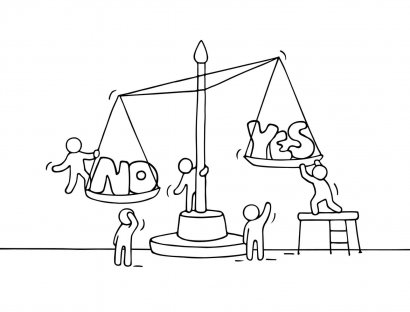 Financial crisis is understood as the phenomenon by which the financial system that governs a country, a region or the entire planet enters into crisis and loses credibility, strength and power.
Financial crisis is understood as the phenomenon by which the financial system that governs a country, a region or the entire planet enters into crisis and loses credibility, strength and power.
Context in which the financial system of a country suffers a drop in credibility and activity
The concept is applied to economic crises that are not caused by some problem in the real economy but by problems that affect the financial or monetary system exclusively.
The financial crisis as a phenomenon is characteristic of the capitalist system, one that is based on the exchange of currencies for products and which is currently financial due to the importance of speculative and banking activities that take place in it.
Types of financial crises
The specialists identify three types of financial crises, the exchange rate crises, which are generated when there is a speculative movement against a currency and which ends up generating a devaluation of it, or a large depreciation of it. This context means that the country's monetary enforcement authorities have to go out to defend the currency through the use of the reserves held by the central bank, or, failing that, interest rates may be increased.
On the other hand, it may be a banking crisis that precisely affects these entities and is produced by their bankruptcies as a result of mass withdrawals of deposits by customers and this context ends up forcing government authorities to intervene to prevent massive bankruptcies and a total and devastating crash of the sector.
An example of this type of crisis is the one that occurred in the Argentine Republic in 2001, when banks fell due to no longer being able to sustain the so-called economic convertibility (an Argentine peso equal to one dollar).
People began to withdraw their deposits en masse and when the situation reached a point of no return, the entities totally limited the delivery of money to their clients and the financial corral was imposed.
Most of the savers lost their money, or for now they could not have their deposits in fixed terms for a long time, and they had to make legal claims to recover them years later, although none could recover exactly the amount they had deposited.
In other words, whoever had a thousand dollars deposited did not recover the dollars but was given a sum equivalent in pesos at the exchange rate in effect on the day of the favorable judicial resolution.
And finally, there are the external debt crises that imply that a country cannot meet its obligations to its foreign creditors.
Serious consequences
Financial crises involve the crack or break of the order tacitly established by the capitalist market. These phenomena usually occur when the different financial systems act in such a way that they make the bonds, stocks and financial elements of companies or banking organizations lose their value, thus entering into crisis. The most complicated element of financial crises is not the causes but the consequences, which are generally very difficult to control and contain.
In this sense, the consequences of a financial crisis, in addition to the loss of value of the shares or elements of a company, are the runs and panics that generate greater weaknesses to the system as the different exchange actors withdraw their capital from the Stock Exchanges , interest rates rise and reliability is lost in general terms.
Financial crises are always very hard on a social level as well since their consequences can be observed both in the short and long term in phenomena such as unemployment, inflation, the rise in interest rates and the values of mortgage loans, the recession. general misery and poverty. Some of the strongest crises of capitalism, such as the crisis of 1929, generate many complications not only at the economic level but also at the level of social reordering.









